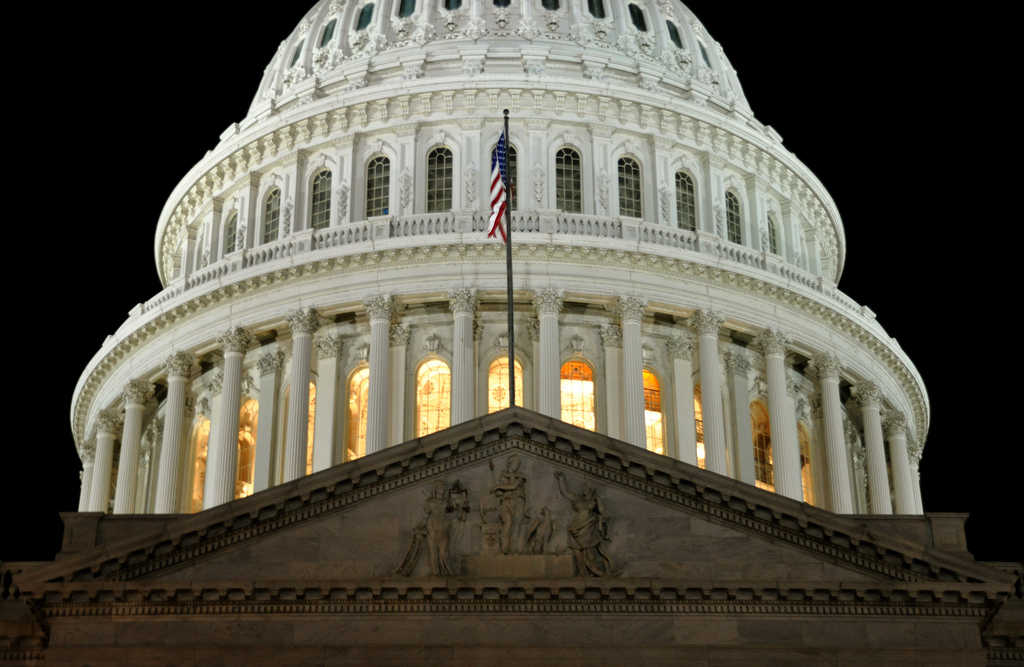Faithwire Opinion is a platform to discuss opinions and points of view from a variety of perspectives and voices. The opinions or information put forth by contributors/authors are exclusive to them and do not necessarily represent the views of Faithwire.
—
Earlier this week, the U.S. House of Representatives voted on Rep. Trent Franks’ (R-Ariz.) Pain-Capable Unborn Child Protection Act, which would ban abortion after 20 weeks, with limited exceptions. The bill passed 237-189, and has already been introduced in the U.S. Senate.
The House has voted on Franks’ legislation numerous times, though now it actually looks to have a chance of passing. The science remains the same in that unborn children at 20-weeks have been human persons since conception, and that they can feel pain. The difference, however, is that President Donald Trump is now in office, and had made it a campaign promise to sign such legislation if it came across his desk. His administration released a statement signaling his support and willingness to sign.
In announcing the bill’s vote late last month over Facebook, Franks wrote that “We can all agree a 20-week-old fetus who feels the torturous pain of being slashed, or cut in two, should not be killed.” While all unborn children are worthy of protection, Franks acknowledges that “this is the bare minimum.” Babies born way before the typical 40-weeks have survived, as was the case for a child named Micah, who appeared with Franks and was born at just 22-weeks.
For the sake of Micah, and all others who have been born early, as well as those who could still be saved, it’s crucial that this bill passes the Senate and is signed into law.
Doctors have not only testified that unborn children feel pain by 20-weeks, with more recent research suggesting as early as the first trimester, but that they feel pain more intensely than adults because of development of their neurological mechanisms. Franks was being truthful in referencing babies who experience “the torturous pain of being slashed, or cut in two.”
Late-term abortions at this gestation may involve a saline abortion, which burns the unborn child. Another method, commonly referred to as a D&E abortion, which dismembers the child. Former abortionist Dr. Anthony Levatino, explains further in the Abortion Procedures series by Live Action.
Numerous polls show that a majority of Americans are in favor of such abortion limitations, including women and those who identify as pro-choice. If the bill becomes law, it will apply to all 50 states. Meanwhile, such legislation has passed in 21 states, and is in effect in most of those.
A cut-off on most abortions after 20-weeks would not only follow a trend of many states, but for the rest of the world as well. The United States is only one of seven nations which allows for elective abortions past 20-weeks, which puts us in league with countries like China and North Korea.
A recent example of this came out of Germany. Chancellor Angela Merkel supports abortion, but also mandating counseling for families considering aborting their children diagnosed with Down Syndrome in utero. She shared this during an exchange with Natalie Dedreux, an 18-year old who has Down Syndrome, and advocates for those with disabilities.
Related: Teen with Down Syndrome Challenges, Stuns German Chancellor Angela Merkel on Abortion
Planned Parenthood, which provides more abortions than any other entity in the country, has consistently released misleading information about why women seek out late-term abortions.
Opponents of this abortion ban claim that such abortions are performed because of the life or health of the mother, or that of the unborn child. Studies show, however, including those reported by the pro-choice Guttmacher Institute, that most women have these abortions for socioeconomic reasons, as they do for earlier abortions.
Even if a child were to be diagnosed with a serious complication, there are resources available beyond abortion. Regardless of abilities, all unborn children are human persons worthy of protection, and ought not to be targeted for ‘eradication,’ as they are in other parts of the world.
READ: Sick: Iceland Boasts About ‘Eradicating’ Those with Down Syndrome
Doctors and tests may not always be right, either. Such was the case with countless children, such as comedienne’s Lynn Ferguson’s.
Late-term abortions are not only tragic for pain-capable children, but often end badly for the mother as well. These women tend to be younger and have repeat late-term abortions, which means they go through the risks of the procedure all over again.
Medical risks increase to at least 50 percent for late-term abortions, and can include physical and psychological effects. Some women have even died from their late-term abortions.
The United States may be far behind the rest of the world when it comes to protecting the unborn, our most defenseless and vulnerable citizens. We are better than such a status, however. The time is now to pass a 20-week abortion ban, not only to catch up with the international community, but to do right by innocent child and ourselves.


